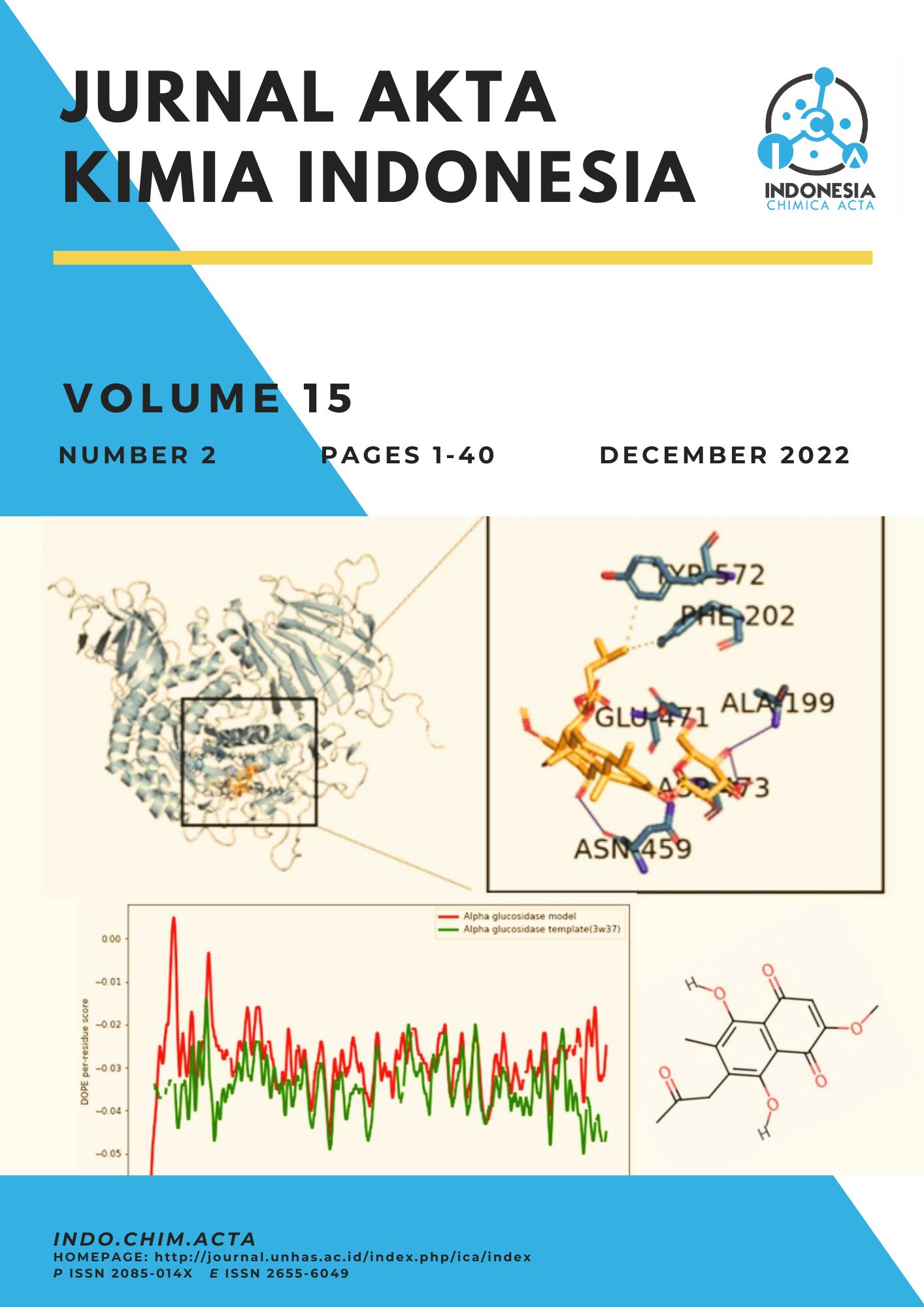Main Article Content
Abstract
Abstract. In the health sector, the use of polyurethane (PU) as a basic material for the manufacture of medical devices also creates problems related to local and systemic infections. One of the most appropriate ways to overcome this problem is to add titanium dioxide (TiO2) nanoparticles to the urethane polymer to produce a biodegradable polymer and bacterial decontamination. In synthesizing decontaminating polyurethane bacteria, several characterization techniques were carried out, including polymer test, namely strain and stress, functional group analysis using Fourier Transform Infra-Red (FTIR), and antibacterial test. Based on the results of the FTIR test analysis, shows a change in the functional group. At wave number 1724.36 cm-1, the N-H functional group appears, this absorption is the absorption of the urethane group and TiO2 is in the range of 513.07 cm-1. Mechanical properties test showed strain (28.92 - 21.88% GL) and young modulus at intervals (5,484-3,268 MPa). and the antibacterial test showed that the inhibitory power of test samples A1 and A4 with resistance diameters of 8mm and 8mm proved to be very effective in killing E.Coli bacteria while A1¹, A2¹, A3¹, and A4 killed could not kill S. Aureus bacteria inhibitors. The characterization results show that the polyurethane biopolymer can be used as a medical device with bacterial decontamination properties.
Article Details

This work is licensed under a Creative Commons Attribution-ShareAlike 4.0 International License.
How to Cite
andi rahmi, andibudirohmi. (2023). The Effect of Titanium Dioxide Nanoparticle Composites as an Antibacterial in Synthesizing Polyurethane Biopolymers. Jurnal Akta Kimia Indonesia (Indonesia Chimica Acta), 15(2), 16-20. https://doi.org/10.20956/ica.v15i2.24324
